Daily Vocabulary Words: List of Daily Used Words in Leading International Newspapers
Hi there. Welcome to this special section @ Wordpandit.
Our endeavour here is very simple: to highlight important daily vocabulary words, which you would come across in leading newspapers in the country. We have included the following newspapers in our selection:
• The New York Times
• The Washington Post
• Scientific American
• BBC
• The Guardian
• Psychology Today
• Wall Street Journal
• The Economist
We are putting in extensive work for developing your vocabulary. All you have got to do is be regular with this section and check out this post on a daily basis. This is your repository of words that are commonly used and essentially, we are posting a list of daily used words. Hence, this has significant practical application as it teaches you words that are used commonly in leading publications mentioned above.
Visit the website daily to learn words from leading international newspapers.
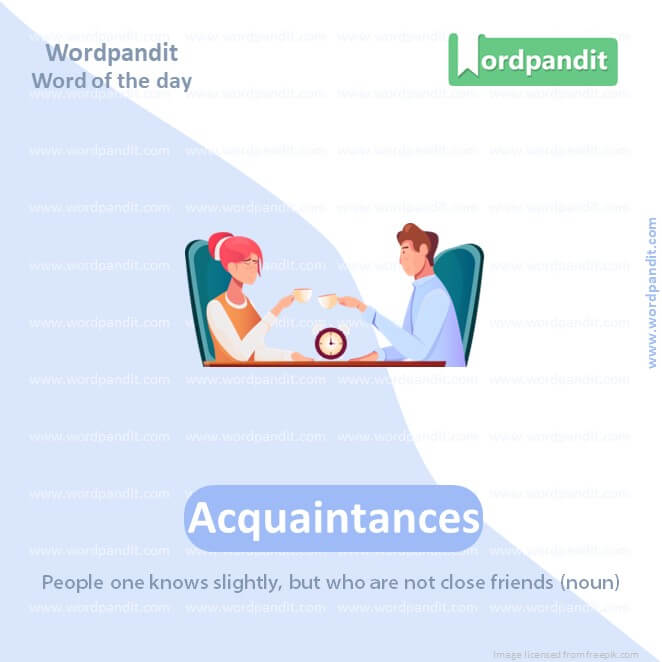
WORD 1: Acquaintance
CONTEXT: You couldn’t be sure what could you handle yourself under torture — how could you be sure about your acquaintance?”
SOURCE: New York Times
EXPLANATORY PARAGRAPH: An acquaintance is someone you know a little bit, but they are not your close friend. It’s like a kid you sometimes play with at the park, but you don’t know them really well.
MEANING: People one knows slightly, but who are not close friends (noun)
PRONUNCIATION: uhkweyntns
SYNONYMS: contact, associate, connection, colleague, companion
USAGE EXAMPLES:
1. I ran into an old acquaintance from school the other day.
2. She has a wide circle of acquaintances in the city.
3. He’s more of an acquaintance than a friend.
4. They were just acquaintances, not best friends.
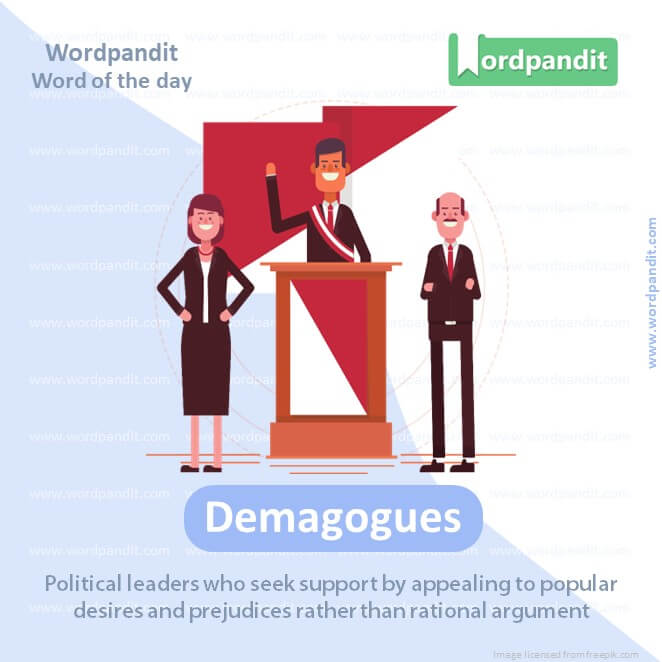
WORD 2: Demagogues
CONTEXT: Charges will be a clear signal that queer people belong in a democratic world — and that the demagogues using homophobia are the ones who should be considered pariahs.
SOURCE: New York Times
EXPLANATORY PARAGRAPH: A demagogue is like a person who tries to get people to follow them by saying things that are exciting but not always true, kind of like a playground leader who makes big promises to get other kids to play their game.
MEANING: Political leaders who seek support by appealing to popular desires and prejudices rather than rational argument
PRONUNCIATION: demuhgog
SYNONYMS: agitator, rabblerouser, instigator, firebrand, provocateur
USAGE EXAMPLES:
1. The politician was considered a demagogue for his emotional speeches.
2. Demagogues often use fear to control their followers.
3. The history of politics is filled with demagogues who rose to power by manipulation.
4. She warned against the dangers of listening to demagogues.
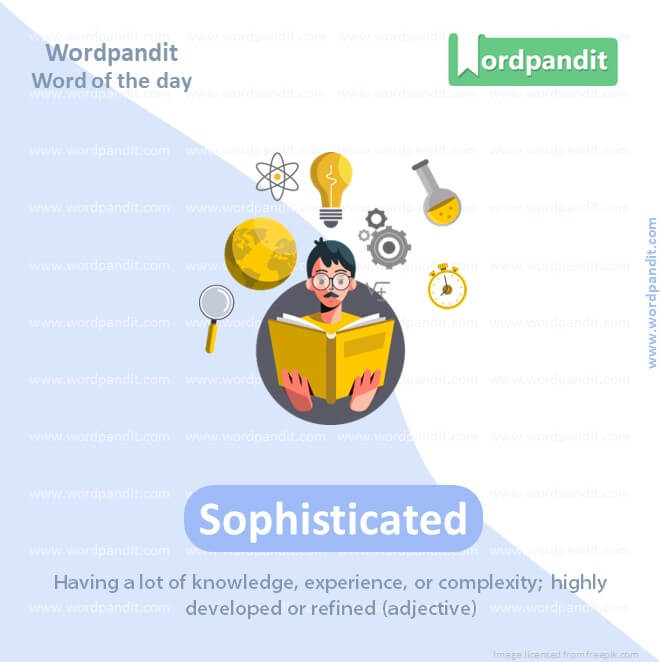
WORD 3: Sophisticated
CONTEXT: North Korea developed a nuclear arsenal estimated at 50 warheads and sophisticated missiles that can, in theory, deliver those weapons to targets in the continental United States.
SOURCE: New York Times
EXPLANATORY PARAGRAPH: Sophisticated is when something or someone is very smart, knows a lot about the world, and acts in a grownup way, like a teacher who knows lots of big words and dresses very nicely.
MEANING: Having a lot of knowledge, experience, or complexity; highly developed or refined (adjective)
PRONUNCIATION: suhfistikaytid
SYNONYMS: cultured, worldly, refined, polished, cosmopolitan
USAGE EXAMPLES:
1. The museum’s exhibit was very sophisticated and informative.
2. She has sophisticated tastes in art and music.
3. The software is too sophisticated for a beginner to use.
4. His sophisticated demeanor made a good impression at the interview.
WORD 4: Longcherished
CONTEXT: the longcherished goal of peaceful reconciliation between the two Koreas, and he called for “completely occupying, subjugating and reclaiming” the South if war breaks out.
SOURCE: New York Times
EXPLANATORY PARAGRAPH: Longcherished is like something you have loved or wanted for a very, very long time, like a toy you’ve always wanted since you were really little.
MEANING: Held dear or valued for a long time (adjective).
PRONUNCIATION: lawngcherisht
SYNONYMS: longheld, treasured, beloved, valued, longdesired
USAGE EXAMPLES:
1. She finally achieved her longcherished dream of becoming a doctor.
2. The longcherished tradition was passed down through generations.
3. His longcherished ambition was to travel the world.
4. The longcherished necklace was a family heirloom.
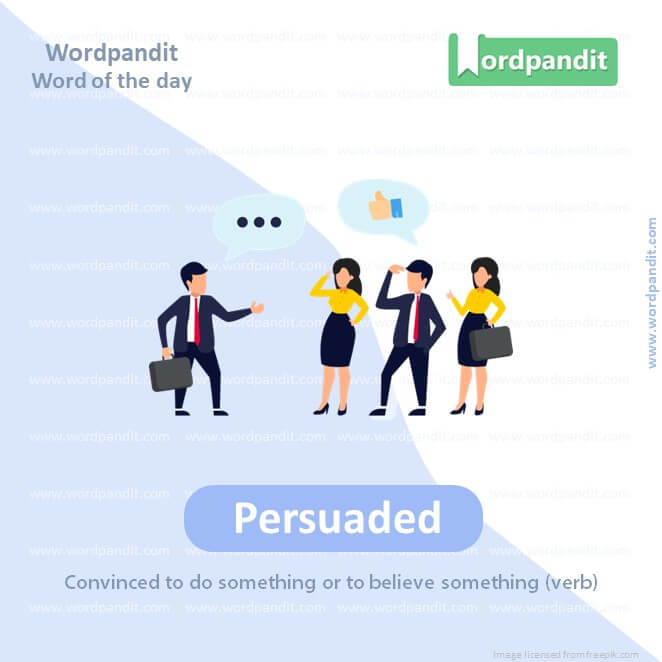
WORD 5: Persuaded
CONTEXT: It was the prospect of Americanled economic sanctions being lifted that persuaded him to make the 60hour train ride from Pyongyang to Hanoi to meet thenPresident Trump for their second summit in 2019.
SOURCE: New York Times
EXPLANATORY PARAGRAPH: Persuaded is when someone talks to you and makes you decide to do something because they make it sound like a good idea, like when your mom convinces you to eat vegetables because they’re good for you.
MEANING: Convinced to do something or to believe something (verb).
PRONUNCIATION: persweydid
SYNONYMS: convinced, influenced, swayed, induced, enticed
USAGE EXAMPLES:
1. She was persuaded to join the club after seeing all the fun activities.
2. He persuaded his parents to let him go on the trip.
3. The advertisement persuaded me to buy the product.
4. They were finally persuaded after a lengthy discussion.
WORD 6: Disarmament
CONTEXT: Disarmament can remain a longterm goal but is impossible if the two sides aren’t even talking.
SOURCE: New York Times
EXPLANATORY PARAGRAPH: Disarmament is when countries agree to put away their weapons and stop having so many guns and bombs, so they can live peacefully without fighting.
MEANING: The reduction or withdrawal of military forces and weapons (noun).
PRONUNCIATION: disahrmuhmuhnt
SYNONYMS: demilitarization, arms reduction, deescalation, pacification, weapon removal
USAGE EXAMPLES:
1. The peace talks focused on disarmament in the region.
2. Disarmament treaties help prevent war between countries.
3. Nuclear disarmament is a goal of many international organizations.
4. The two nations agreed to a disarmament plan to build trust.
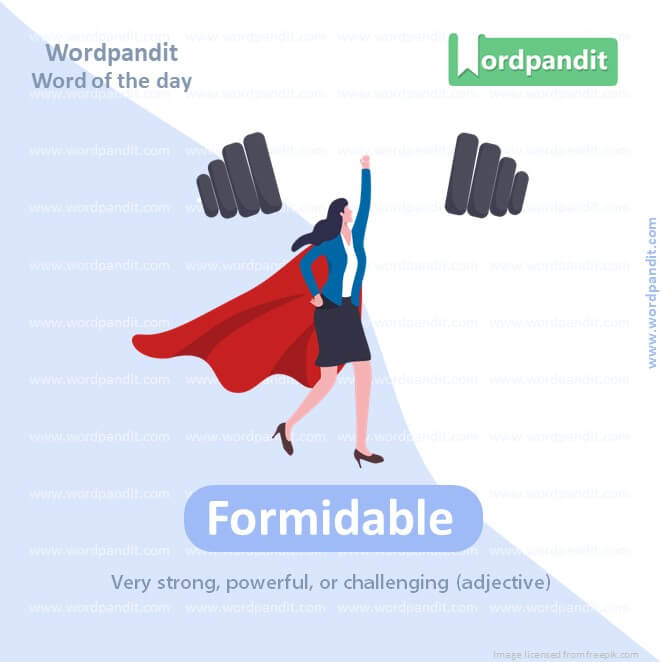
WORD 7: Formidable
CONTEXT: The country is now a formidable nuclear power, and its leader sounds increasingly belligerent
SOURCE: New York Times
EXPLANATORY PARAGRAPH: Formidable is when something is really strong, big, or impressive, and it makes you feel a little bit scared or amazed, like seeing a huge mountain or a very tall building.
MEANING: Very strong, powerful, or challenging (adjective)
PRONUNCIATION: formiduhbul
SYNONYMS: intimidating, daunting, impressive, powerful, commanding
USAGE EXAMPLES:
1. The team faced a formidable opponent in the final match.
2. She has a formidable reputation in the field of science.
3. The challenge before them was a formidable one.
4. The fortress looked formidable on the hilltop.
WORD 8: Belligerent
CONTEXT: The country is now a formidable nuclear power, and its leader sounds increasingly belligerent.
SOURCE: New York Times
EXPLANATORY PARAGRAPH: Belligerent is when someone is ready to fight or argue, kind of like when someone keeps picking on you and seems like they want to start a fight.
MEANING: Hostile and aggressive (adjective).
PRONUNCIATION: buhlijeruhnt
SYNONYMS: aggressive, combative, confrontational, hostile, warlike
USAGE EXAMPLES:
1. The belligerent tone of the speech upset many people.
2. Despite his belligerent attitude, he was a goodhearted person.
3. The two belligerent countries finally agreed to peace talks.
4. His belligerent behavior caused trouble at the meeting.
WORD 9: Embattled
CONTEXT: The situation is serious, not only for education but also for our embattled democracy.
SOURCE: New York Times
EXPLANATORY PARAGRAPH: Embattled is when someone is having a lot of problems or fights, like a superhero who is always battling bad guys and facing challenges.
MEANING: Under severe attack; in a state of conflict (adjective).
PRONUNCIATION: embatuhld
SYNONYMS: besieged, under fire, troubled, hardpressed, beleaguered
USAGE EXAMPLES:
1. The embattled leader faced criticism from all sides.
2. The city was embattled during the long war.
3. Despite being embattled by scandals, the company survived.
4. The embattled troops held their ground against the enemy.
WORD 10: Equipping
CONTEXT: The best teachers in schools with the “best” students; equipping schools, in effect, in accordance with parental income;
SOURCE: New York Times
EXPLANATORY PARAGRAPH: Equipping is like getting ready for something by making sure you have everything you need, like when you pack your backpack with lunch and books before going to school.
MEANING: Providing with the necessary items for a particular purpose (verb).
PRONUNCIATION: ihkwiping
SYNONYMS: furnishing, outfitting, provisioning, supplying, arming
USAGE EXAMPLES:
1. The team was wellequipped for the expedition.
2. Equipping the laboratory with the latest technology cost a lot of money.
3. The soldiers were equipped with new gear for the mission.
4. She is equipping her new apartment with all the essentials.
Vocabulary Daily Use Words
In the architecturally diverse world of language learning, ‘vocabulary daily use words’ act as a cornerstone. We often take these words for granted, but their significance in day-to-day communications is nothing short of monumental. Mastering these ‘vocabulary daily use words’ should be more than an ancillary task on the sideline; it should take the center stage in your language learning journey.
To begin with, approach ‘vocabulary daily use words’ with the same gusto and reverence as you would an untapped treasure chest. Go beyond the conventional realm of textbooks and explore the world of contemporary literature, newspapers, and digital content. By immersing yourself in these mediums, you’re aligning your learning with real-world language usage, thereby gaining a practical understanding of ‘vocabulary daily use words.’
Memory-enhancing tools add an extra layer of effectiveness to your learning. Flashcards, for example, are a great way to make your study sessions interactive and memory-forging. Coupled with the Leitner system, which is a principle of spacing and repetition, you can ensure better recall and understanding of ‘vocabulary daily use words.’
Furthermore, leveraging mnemonic devices aids in etching the ‘vocabulary daily use words’ into your memory. Associating common words with unique and memorable narratives in your mind enhances their recall. Regular revision and using these words in routine conversations further cement your proficiency.
The potency of immersion as a language learning strategy cannot be emphasized enough. Conversing with native speakers, if possible, provides context to ‘vocabulary daily use words’ and boosts your fluency.
In conclusion, mastering the ‘vocabulary daily use words’ is an enriching journey that requires ongoing effort, continual exposure, and hands-on practice. The strategy of learning through various mediums, using memory-enhancing techniques, leveraging mnemonic devices, and immersion can help demystify these words and enhance your overall language proficiency. So, gear up and embrace the linguistic adventure of mastering the ‘vocabulary daily use words.’











